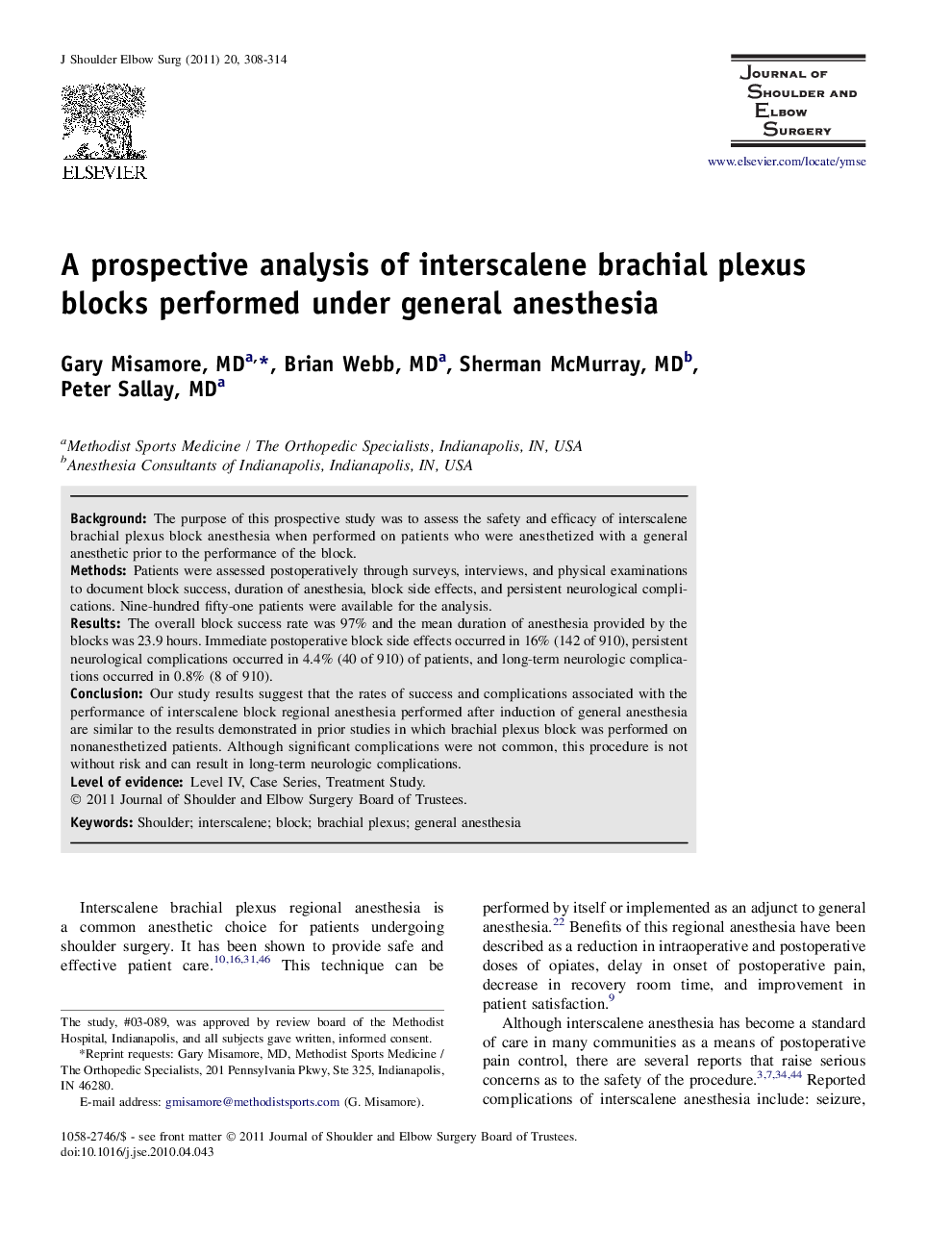| Article ID | Journal | Published Year | Pages | File Type |
|---|---|---|---|---|
| 4074881 | Journal of Shoulder and Elbow Surgery | 2011 | 7 Pages |
BackgroundThe purpose of this prospective study was to assess the safety and efficacy of interscalene brachial plexus block anesthesia when performed on patients who were anesthetized with a general anesthetic prior to the performance of the block.MethodsPatients were assessed postoperatively through surveys, interviews, and physical examinations to document block success, duration of anesthesia, block side effects, and persistent neurological complications. Nine-hundred fifty-one patients were available for the analysis.ResultsThe overall block success rate was 97% and the mean duration of anesthesia provided by the blocks was 23.9 hours. Immediate postoperative block side effects occurred in 16% (142 of 910), persistent neurological complications occurred in 4.4% (40 of 910) of patients, and long-term neurologic complications occurred in 0.8% (8 of 910).ConclusionOur study results suggest that the rates of success and complications associated with the performance of interscalene block regional anesthesia performed after induction of general anesthesia are similar to the results demonstrated in prior studies in which brachial plexus block was performed on nonanesthetized patients. Although significant complications were not common, this procedure is not without risk and can result in long-term neurologic complications.
